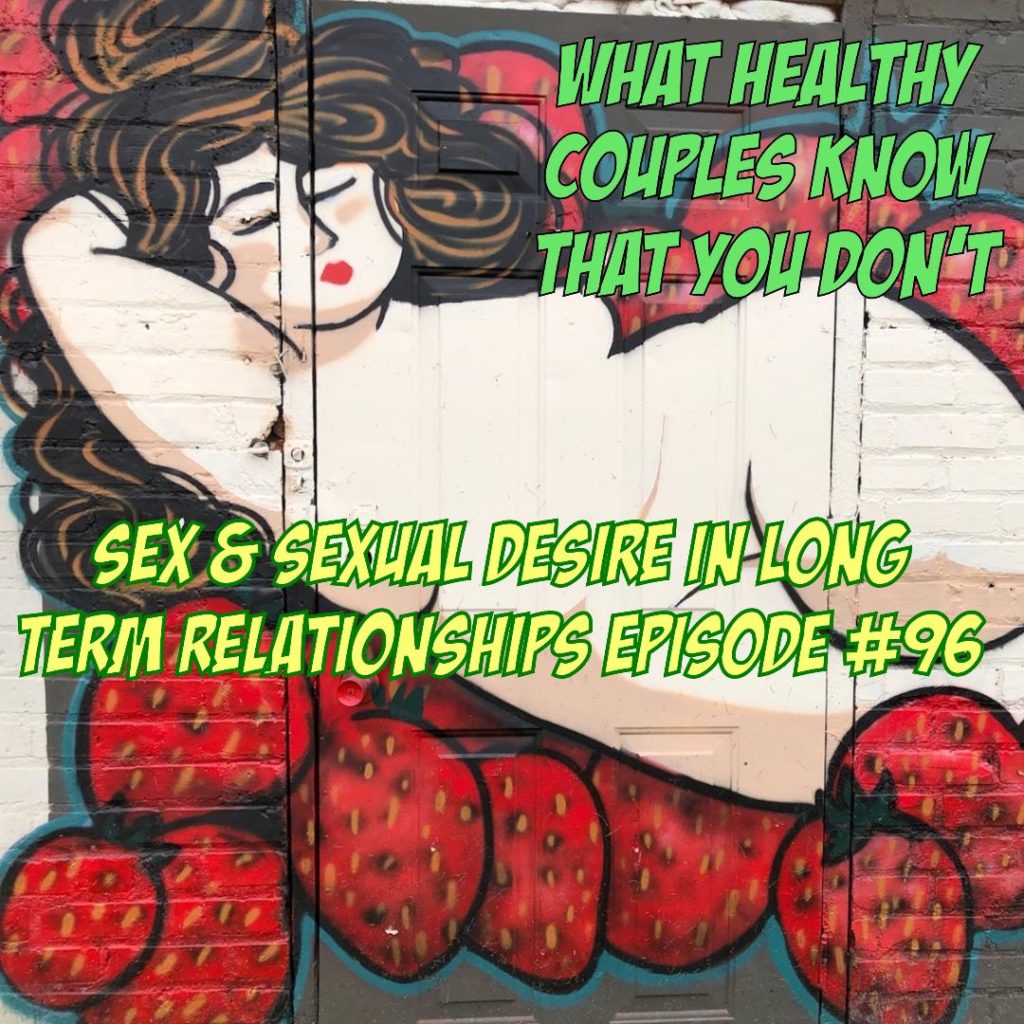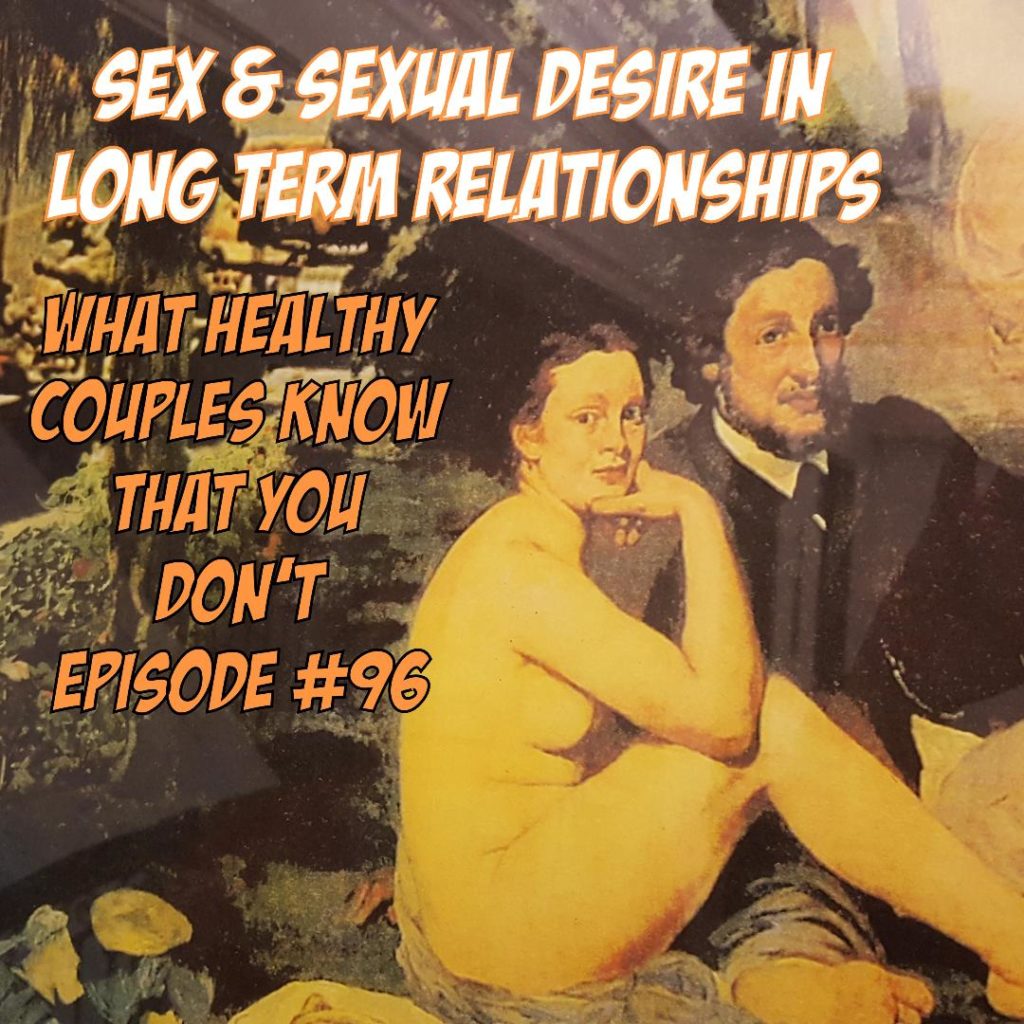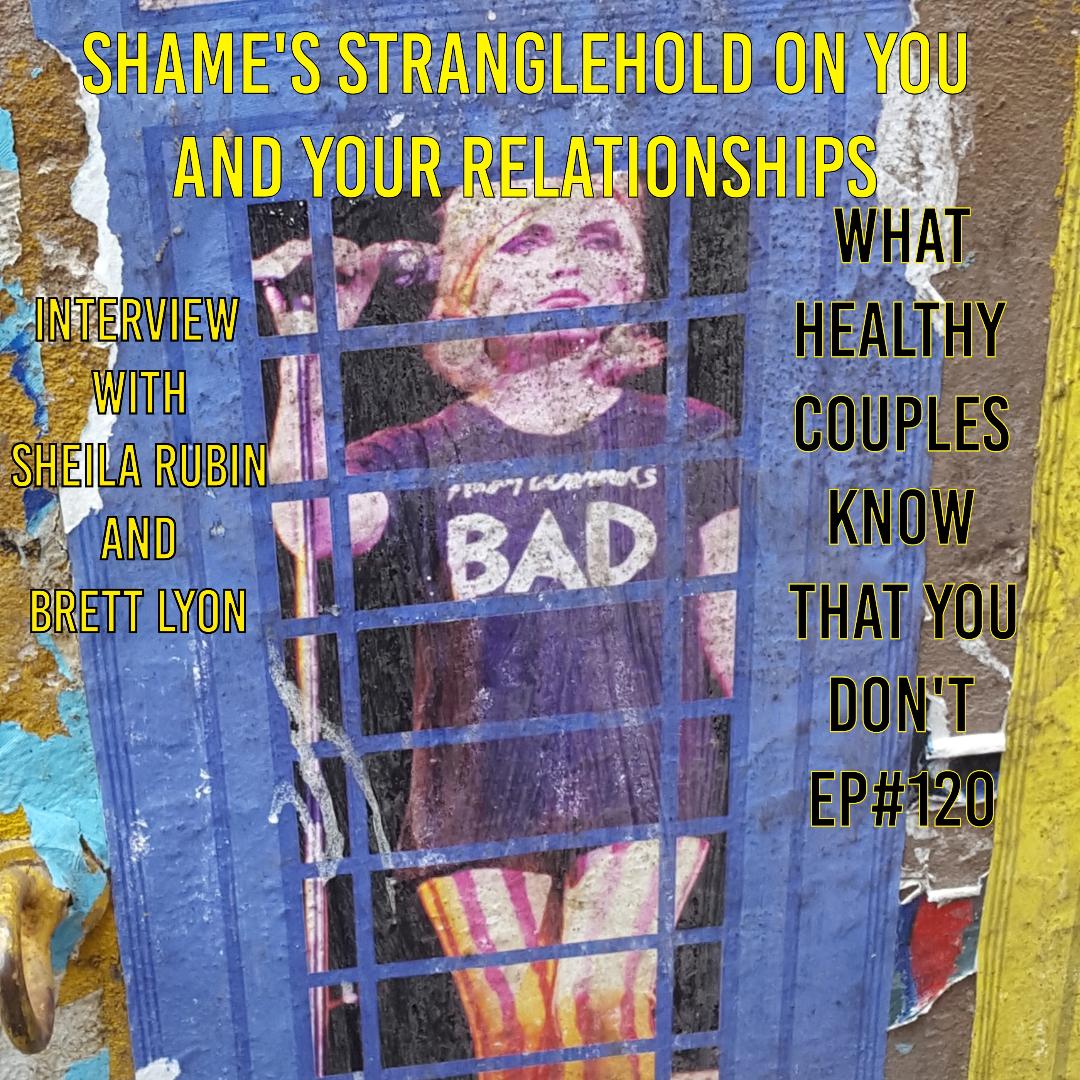
Sexuality is a complex, crucial activity. It’s only on television where couples reach maximum orgasm easily. Our interest in sex naturally ebbs and flows over the course of a long- term relationship as we age or deal with life changes— It’s important to keep in mind that researchers have reliably found that individuals who accept these fluctuations as normal and natural are more sexually satisfied when they hit a bump.
There are certainly many reasons for sex & libido to change in relationships & each of these need to be explored: medications like SSRI’s, stress, health problems like diabetes or cancer, or hormonal changes after giving birth or with aging.
There is a wonderful series on Netflix called Pleasure. Where I learned the latin for external genitalia was Puddler meaning to make ashamed. In the 1948 edition of Gray’s Anatomy had no clitoris. It wasn’t until 2005 that Helen O’Connell an Australian neurologist mapped the vulva which I think is absolutely shocking….2005. There are a lot of mixed messages attached to sex, no wonder it’s confusing!
In Passionate Marriage the author David Schnarch believes codependence contributes to a lack of passion. A number of studies have documented the importance of having some autonomy in our relationships in order to increase sexual desire and passion. This space is theorized to give us the breathing room to “see” our partner and appreciate them from a distance.
Couples do better in their sex life if the partners are motivated to see sex as relationship enhancing. In several studies, couples who reported higher levels of sexual desire also report making the effort to try something new and different, no matter how small, to keep things interesting and fresh in the bedroom.
When one partner feels/believes they do more for the household then sexual desire is documented to decrease.
Wednesday Martin in a 2019 article in Atlantic magazine & she reports long term relationships are tougher on female desire. She said for women “wanting monogamy isn’t the same as feeling desire in a long-term monogamous partnership.” So it would seem that adding novelty into the sexual mix would be important. Turns out it is “Women are the primary consumers of sex-related technology and lubricants, massage oil, and lingerie, not men.” Though female sexual dysfunction impacts 1 in 10 women & among these women there is a lot of guilt & self-blame.
One final note: People tend to enjoy sex once they start having it, even if they weren’t initially in the mood. This is particularly true for aging women with less hormonal advantage. So it’s important to stay open minded. It’s also important to care a lot about your partner’s sexual pleasure, then you tend to experience more desire to have sex with them.
Also don’t dismiss scheduled sex…..it doesn’t mean that it’s less than. In fact anticipation can build which is always a good thing.
Today’s guest is Irene Fehr who is an American based in the Netherlands.. Over the last decade she has been a sex & intimacy coach specializing in women’s libido and sexual desire in a long-term relationship. She’s helped hundreds and hundreds of couples and single women to find sexual aliveness, satisfaction and connection. Thanks for being my guest today!
#1. So let’s begin how do we kill off our sexual desire? How does this happen in so many loving long term relationships?
Irene: Yeah, I love this question because I want to really focus on the loving part of long-term relationships, & connecting it to what I’m about to say, that some of the most heartbreaking things that I see is couples who really love each other, & who struggled with sex. A couple of years into the relationship or 10 years or 20 years.
& what they experience actually has nothing to do with their love for each other, which is where it’s really heartbreaking. & the way I think about sexual desire in a long-term relationship is that it actually is supposed to die at some point. & the reason is that when we start a relationship, when we meet someone & we’re dating, we’re under the influence of a highly intoxicating cocktail of sexual attraction & newness, & all these feel good hormones that make us do a lot of things. Like, think about each other all the time, want to keep our hands on each other, these hormones, they have us want to rip each other’s clothes off.
& unfortunately, because of so much of a lack of education, we think that that’s the norm, we think that that’s how it’s supposed to be. Whereas that beginning is a very, very special, unique time in a relationship. & to maintain that, it’s very hard, because you have to be intoxicated. & some people do stay intoxicated under the influence of drugs & alcohol, & are able to maybe not recreate the same levels of passion, but they can maintain that kind of a rawness of what you experienced in sex in the beginning. But realistically, over time, once we burned through those hormones in the beginning, once love & connection set in, & the relationship becomes a longer term relationship, that passion dies out.
& this is where couples start to question each other, they start to question their desirability, their worthiness, they start to question their attraction to each other, they question whether they really should be in a relationship, because they’re seeing that they’re starting to disconnect. & they end up going into this, what I call a marriage death spiral of a lot of these behaviors of resentment & withdrawal, & distancing, & walking on eggshells. So, fighting with each other over the little things, all the way down to losing trust, & it’s heartbreaking.
& I can see this happening. This is the unfortunate piece, is that this is real, & this is predicting, because again, we don’t realize that what happens in the beginning is, again, very special, very unique, & that is going to end at some point. The key is to understand that when sex & sexual desire, the way you had it in the beginning, dies out, that’s not a bad thing, but it’s actually an opportunity to create sex that’s based on intentional & conscious connection. It’s based on learning about each other, being curious about each other, & using your voice, using communication to learn about each other, rather than just go with the flow of the hormone.
Rhoda: Wow, I really like that kind of reframing, so that people can understand that shift doesn’t mean that you don’t love the other person, & I think that’s really important distinction. Do you think women know that the clitoris with its 8,000 nerve endings & has as much erectile tissue as a penis, & my part two question is, do you believe that society contributes to women feeling broken, sexually?
Irene: Oh, there’s so much I can answer on that. So, let me go one by one. So yes, the clitoris has 8,000 nerve endings, which is two & a half times more than what a penis has in terms of nerve endings. & yes, it does have the same erectile tissue surface area as a penis, the difference is that that surface area is inside our bodies, & it gets erect, & it grows inside, basically unifying all the different parts of our anatomy, certainly the tip of the clitoris, but then also the labia, the vagina, vagina connecting to the cervix, which, of course, it is connected, but then they start to really work together like a symphony.
& one of the saddest things I find is that not only do most women not know this, but they also doubt their own ability to enjoy sex & sexual stimulation, & they doubt their ability to orgasm. & I was one of those women, I didn’t have an orgasm till I was 34 years old, & I was labeled inorgasmic. I doubted myself. & the fact that we don’t know our own anatomy, & we don’t know how our clitoris works, means that we don’t know how to tap into its potential. & so, until I was in my 30s, I was having sex that was uncomfortable at best, painful at worst, because I didn’t know how to work with the anatomy.
& more than pleasure, the clitoris is also res…Well, let me say it differently. Of course, the clutter is responsible for pleasure, & we know that. But there’s another very important purpose for the clitoris, that it’s not just creating an orgasm, that the clitoris on a whole, like I said, that the whole area inside, when engorged, when filled with blood, when pumping with energy, & stimulation, it actually works with the rest of the genitalia, including the vagina, to make sex pleasurable.
& so, for many women, penetration is extremely painful. & historically, we’ve never linked the clitoris & clitoral stimulation to being able to have penetration sex that’s not only without pain, but also pleasurable. & these things are very much connected, & they’re connected on the inside, which is again, why we don’t know much about it, because it’s hidden on the inside.
& that is also one of the reasons why we think that women are broken sexually, again, we doubt our orgasmic potential, we doubt our ability to have pleasure. & that’s really been one of the primary reasons that we’re under-utilizing, under stimulating, under appreciating our own sexual anatomy, because of the lack of education about it.
Rhoda: I agree. What I was going to say was that it’s even in my deaf, when I pronounced clitoris, which is wrong, & you said it right, which is clitoris. & I thought, that’s an example right there, you don’t hear the word very often, & I’m a big reader, so I do it the best I can. But I think it’s an example of our ignorance, & I think that’s a really important. I learned things from that, Netflix, the picture of the way it all is connected, I had no idea, & I’ve been talking to people about sex for 40 years. I’m kind of amazed, you know?
Irene: Yeah, & this goes back to almost 150 years now to the time of Freud, when Freud made the statement that women’s sexuality, because women lack a penis. Women’s sexuality is far inferior than the men’s. & so, yes, when you look at the outside of the clitoris, & you see this tiny little part compared to a male penis, well, we’ve all been conditioned in a way to ignore it, to not use a word for it, because it doesn’t, again, in that old sense, it didn’t carry any value, but by us not using the right terminology for our body parts, we’re erasing them out of not only our vocabulary, but the way we relate to our bodies. If we don’t have a word, if we’re not using the word, we are dismissing the existence of it, which is perpetuating this 150 year old historical trend. & we need to start using the right words, & we need to start teaching children about this as well.
Rhoda: I bought my grandsons a great book on sex. I did incest work for two & a half years, & I just really think kids understanding themselves & their bodies is an important deterrent to sexual abuse as well, because they’re curious, & when somebody approaches them with that curiosity cooking, it’s a whole different mix. Yeah. I have so much ignorance, seriously. What can women & couples do to rekindle their spark or save their sexless partnership?
Irene: Well, the first piece is, if they listen to this podcast, or they’ve seen one of my videos where I talk about the death of sex. The first piece is to acknowledge that this is normal, that having your sexual desire weighing, or go away all together, having one partner lose their interest in sex is normal & okay. But again, it’s not that they don’t love each other, or their love is not big enough to make it work. But that this is just part of being in a long-term relationship.

That’s number one. & of course, part of that is grieving, grieving the loss of that magical period from the beginning of the relationship, where you just, like I said, can’t get enough of each other. Because it is exciting & it’s intoxicating, & it’s so magical, that we do need to leave room & space to grieve it, & to grieve that it’s over, that that stage is over. Because so many people want to go back to it, just like women, when they give birth, they want to get back their pre-maternity body, or get our young selves back.
Well, that’s a nice desire, but we cannot go back in time, & we have to allow that grieving to happen. & so, that’s the first piece. & then you can actually start to get curious about what is here? So, now that the hormones are out of the picture, that craziness from the beginning is out of the picture, who is my partner? & who am I? & what does our sexuality, our sexual pleasure, our sexual connection, what does that look like now? & start to get curious. & ideally work with someone who can guide you through that process, because once you’re in the pain of having lost that sexual connection, it’s hard to see your way out. & so, working with someone can help, then they can guide the process.
& part of that process, of course, is also healing the hurt that may have been, or probably was created along the way, the hurt of disappointments, the hurts of rejection, the hurt of being ignored by your partner or the withdrawal. Like some of the things that, the behaviors that I mentioned before, the walking on eggshells, the distancing, the fights, that so many couples try to rekindle sexual desire without doing that part, & they don’t get far, because, of course, that’s all emotional, & that scars you for life. You can’t just let it go just because you’re trying to be all calm & peaceful, & just letting it go doesn’t happen, but there’s a healing that needs to happen here.
& then again, the curiosity can really take over, & you can learn to design your sex life to work with the stage of the relationship that you’re in, & to access the erotic nature, rather than the purely biological drive for sex.
Rhoda: I think a lot about what’s important about curiosity in so many ways, like, to me, it’s the first step out of depression, & the happiness research, I forgot who did it, said that people who are curious have happier lives. I just think curiosity is such a healing driving force, & people seem to minimize it because we’re so frantic. & sex can take time, & it can be delightful, & it can be touching, & sensational, sensing the body, & touching. It’s amazing to me, how we erase curiosities too easily. How do couples break free of their divisive patterns to restore connection? That’s a really good question.
Irene: Well, that’s a great question, & it dove tails from what I said moments ago about these very sticky entangled patterns that they get into. & a lot of the times, the couples have a hard time seeing a way out of them, because they just…I think of it as a spiral that starts small at the top, & then it just widens & widens as they go down, & it in a way has a life of its own. So, of course, the biggest & the most powerful way is to work with someone who can see you, who can see what’s happening, & who can help couples break out of the patterns that keep getting them deeper, deeper into the hole. I saw this at one of the mindfulness conferences that I did a couple of years ago, it was a little plaque that said, “Rule of holes: if you’re in a hole, stop digging.”
Rhoda: I love that!
To learn more & finish the episode please hit play on the player above. You can find Irene on her website: https://www.irenefehr.com













